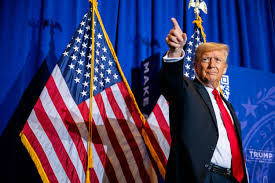There is something
incongruous, if not contradictory, about Julius Malema holding up on TV a copy
of South Africa
Mr Malema was expelled
from the African National Congress for advocating rebellion. His Damascene
conversion appears to be due to SA’s constitutional court judgment on Nkandla,
praised on all sides for its ringing endorsement of democracy and the rule of
law.
But the revolutionary
Mr Malema wants to nationalise mines and banks, although it is government
policy not to. He threatens to take back the land without compensation. He
speaks of eliminating ‘white supremacy’ in language that hints at violence: he
maintains always he is speaking metaphorically. In the ANC, he proposed the
overthrow of the legitimate government of Botswana
Mr Malema formed his
own party, the Marxist-Leninist Economic Freedom Fighters. There, he is
unchallenged Commander-in-Chief and has made the EFF a thorn in the ANC's side.
It serves the ANC
right: the party has only itself to blame for Julius Malema. He is the heir to
its own promise of revolution - except the ANC’s revolution was meant
rhetorically, especially after real revolutions saw the implosion of the state
in Libya , Egypt and Syria
Cut off now from such
benefits, having little to lose and much to gain, Mr Malema gleefully rocks the
overloaded ANC boat. But after his conversion to constitutionalism, it is
impossible to see how his Marxist-Leninism would work. And if it would not
work, what other kind of revolution he would intend - or, horror of horrors,
unleash on SA’s fragile democracy.
Many are suspicious Mr
Malema is the champion of people whose lives he visibly does not share. In
everyday language, they cannot understand how he can be a ‘communist' and an
obvious capitalist at the same time. People are not lost for words. They
explain in their own way how he contrives to speak for the poorest of the poor
when his personal preferences are plainly the riches of the rich. Mr Malema
is a hypocrite, a populist, a demagogue - are three of the more polite ways his
detractors put it.
That still leaves a
political explanation outstanding. Can Karl Marx go hand in hand with what some
openly call Mr Malema's fascism? There seems to be another contradiction there.
Marxism springs from the highest ideals of humanity - the community of all, internationalism and peace. Fascism is not an ideology in any sense. Fascism is
a politics of coercion which, if it entails anything besides verbal and
physical violence, promotes extreme nationalism or nativism shading into racism, all being embodied in a messianic leader ready to be martyred for the sake of 'the people'.
However, these
theoretical differences have always had a way of vanishing in practice. In
Europe a century ago, communism and fascism were implacable enemies: their
street brawls in Germany
after World War I finally ended in the World War II fight to the death between
Comrade Stalin's USSR
But in both cases, the
revolutionary party-state had extinguished civil liberties much earlier. The
difference in reality was only between a dictatorship of the proletariat and a
dictatorship of the German volk.
Outside Europe , communism got a new lease of life by teaming up
with new and growing national feelings. In China
in the early 1920s and in the long war against Japan Cuba
This is the complex inheritance of Julius Malema:
African and European; white and black; national and universal. Whichever
descriptions you use - imperialism, Marxism, democratic centralism, fascism -
all are driven by a crusading zeal to dominate. What that means for SA, we must
decide. Mr Malema cannot tell us when he cannot say what he means himself.

